
ACME Center Researchers
Research Scientist

Dr. Farshad Firouzi
Dr. Farshad Firouzi is a research scientist and Adjunct Faculty Member at Arizona State University, as well as an Adjunct Assistant Professor in the Department of Electrical and Computer Engineering at Duke University. His academic endeavors are characterized by a strong interdisciplinary approach and collaborative spirit, earning him recognition for significant contributions to AI, Edge AI, Systems for AI, IoT, Trustworthy AI, and Microelectronics. He is actively involved in research proposals and has contributed to a variety of projects targeting the National Science Foundation (NSF), Horizon Europe, and the German Federal Ministry of Education and Research. He has authored over 60 conference and journal papers and is the editor/author of the book “Intelligent Internet of Things: From Device to Fog and Cloud.” He has also served as Associate and Guest Editor for several renowned journals, including the IEEE Internet of Things Journal, IEEE Transactions on Very Large Scale Integration (VLSI) Systems, IEEE Transactions on Computer-Aided Design of Integrated Circuits and Systems, and various Elsevier journals like Future Generation Computer Systems, Journal of Network and Computer Applications, and Information Systems. Dr. Firouzi has chaired more than ten international IEEE conferences and workshops. He is the founder of several academic initiatives and events, including IEEE COINS, now fully sponsored by IEEE CEDA, IEEE RAS, and IEEE CS. In addition to his academic achievements, Dr. Firouzi has over eight years of industrial experience, working in Germany, Belgium, and the United States, primarily in the field of R&D. Beyond his academic and industrial roles, Dr. Firouzi is committed to community advocacy. He has organized several panels on Diversity and Inclusion for IEEE and founded a non-profit organization aimed at promoting STEM fields. Through international events and diversity panels, he actively works to create awareness and opportunities for female, non-binary, underserved, and minority researchers.
Postdoctoral Researchers
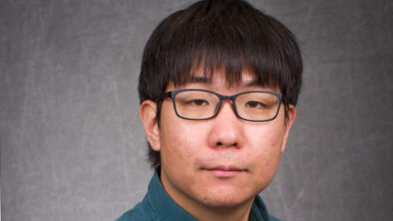
Hwisoo So
I received a Ph.D. in computer science from Yonsei University, and I’m now visiting Arizona State University as a visiting scholar. My Ph.D. dissertation discusses the software-level instruction replication solutions to provide redundancy against hardware faults such as soft and hard errors. In addition, my research interests also include vulnerability estimation of architectures based on simulation. Recently I’ve been focusing on reliability solutions against hardware faults on neural network architectures.
Soyed Tuhun Ahmed
Soyed earned his bachelor’s degree in Electrical and Electronics Engineering from American International University Bangladesh, graduating Summa Cum Laude and receiving the University Gold Medal in 2016. He ranked in the top 1% of all graduates (both bachelor’s and master’s) and completed his degree nearly a year ahead of schedule. During his undergraduate studies, he was actively involved in IEEE Region 10 and the Engineering Student Associations of Bangladesh.
He went on to pursue a master’s degree in Communication Engineering at Technische Universität München (TUM). While at TUM, he worked as a research intern at the chair of design automation under the guidance of Apl. Prof. Dr.-Ing. habil. Helmut Gräb (IEEE Fellow) and at Robert Bosch Corporate Research in Renningen, Germany. He also gained industry experience as a part-time software engineer at Infineon Technologies AG. His master’s thesis focused on the soft error resiliency of peripheral modules in embedded SoCs for safety-critical applications, supervised by Prof. Ulf Schlichtmann.
Soyed then joined the CDNC group led by Professor Tahoori (IEEE Fellow) at KIT – Karlsruhe Institute of Technology in Germany, where he earned his PhD with the highest distinction, summa cum laude—an honor awarded to fewer than 20% of graduates. His PhD thesis, “Scalable and Efficient Methods for Uncertainty Estimation and Reduction in Edge AI Accelerators,” received a best paper award from the IEEE Journal on Emerging and Selected Topics in Circuits and Systemsand three additional best paper nominations at leading EDA and testing conferences. He was also nominated twice for best PhD forum presentation.
Currently, he is a PostDoc at ASU with Prof Krishnendu Chakrabarti. His current research interests are efficient GenAI, neuromorphic computing, resilient hardware accelerators for machine learning, robust and accurate deep learning, HW-SW co-optimization, computation-in-memory, and memory centric-computing.
Students
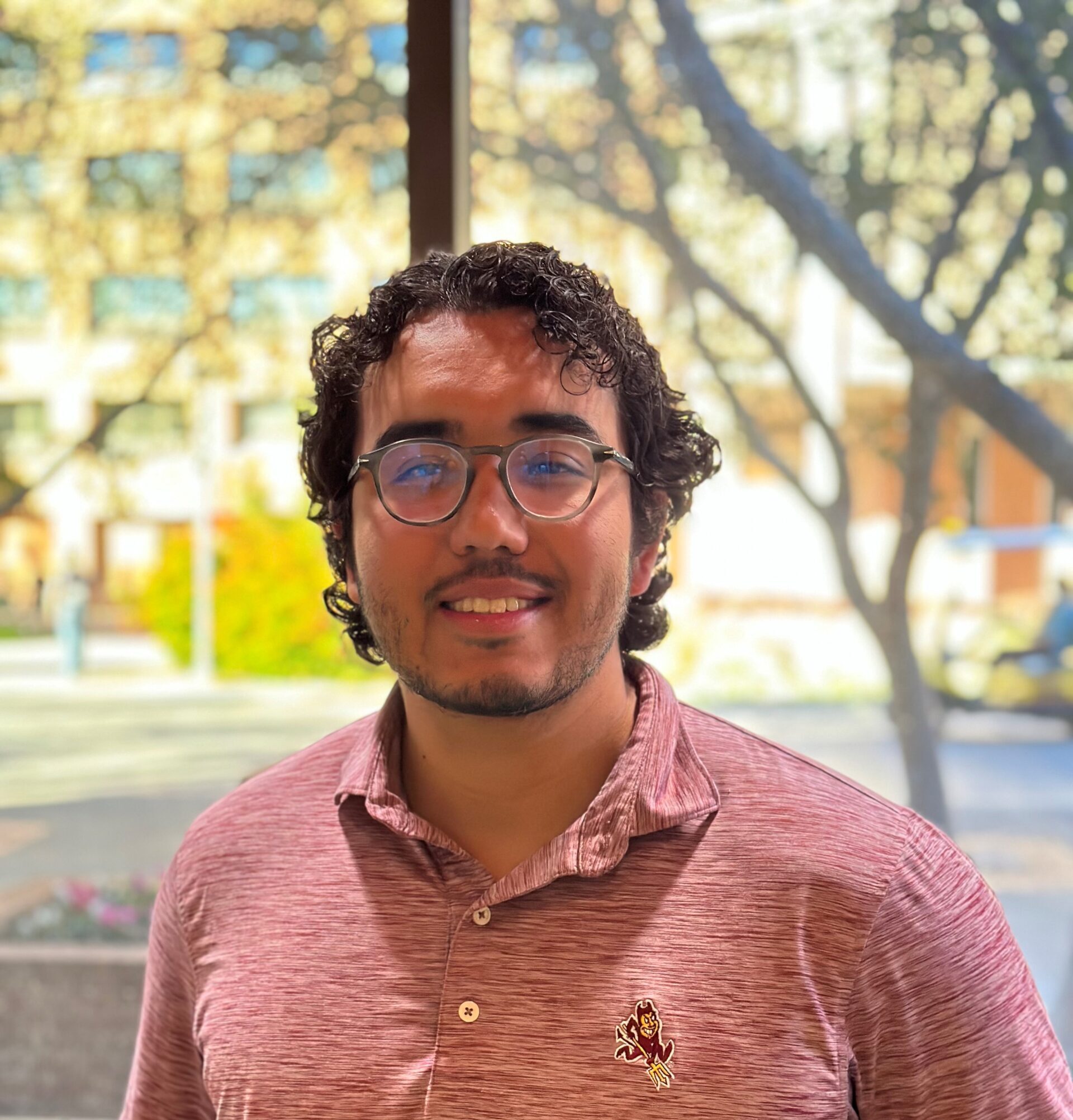
Eduardo Ortega
Eduardo Ortega received his B.A./B.S. degrees in Integrated Engineering from the University of San Diego (2020). At the University of San Diego Eduardo completed research from Ohio State University’s SAMMS REU program focusing on topology, presented at an international leadership case study competition for work with his Leadership Studies minor, and volunteered on a large-scale interdisciplinary art installation (Unfolding Humanity). Before starting his Ph.D., Eduardo gained 2 years of work experience at Intel and Insulet working on SSD testing and mobile-device medical system validation/verification methodologies, respectively. Eduardo completed 2 years of his Ph.D. work at Duke University before transferring to Arizona State University (ASU) to join the ASU Center for Semiconductor Microelectronics (ACME). At Duke University, Eduardo was a National Science Foundation Graduate Research Fellow honorable mention, and Sloan Scholar. Now at ASU, Eduardo is a Fulton Fellow of the Ira A. Fulton Schools of Engineering, School of Electrical, Computer, and Energy Engineering. His research thesis focuses on techniques for scalable resilient computing, i.e., memory security, silicon lifecycle management, and anomaly detection for resource-constrained edge devices. Thus far, his research thesis work has been published papers in the proceedings of IEEE ITC 2023 and IEEE TVLSI 2024. In conjunction, Eduardo is interested in the intersection of ethics/governance and AI technological development. Through this effort, Eduardo published a nominated best paper in the proceedings of IEEE CAI 2023 on AI governance and ethics. In addition, Eduardo has completed internships at Synopsys and Intel throughout his tenure as a Ph.D. student.
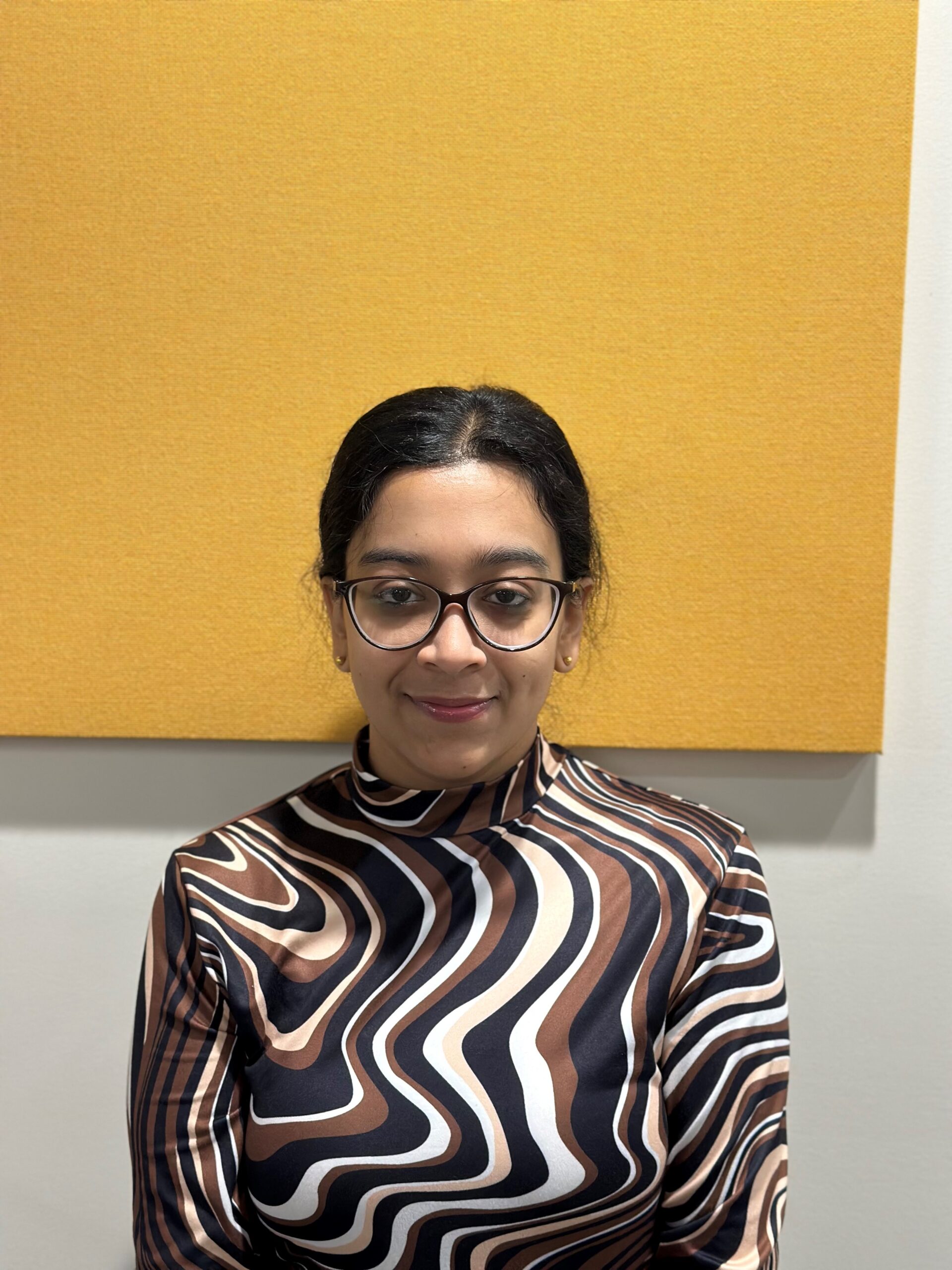
Jayeeta Chaudhuri
Jayeeta Chaudhuri (Member, IEEE) received the B.E. degree from the Department of Electronics and Telecommunication Engineering, Jadavpur University, India, in 2020. She joined Duke University, North Carolina, USA to pursue the Ph.D. degree in the Department of Electrical and Computer Engineering. In 2023, she received the MS degree from Duke University and transitioned to Arizona State University, Arizona, USA to continue her PhD. Her current research interests include cloud FPGA security, analog IC security, and ML-assisted countermeasures for hardware Trojan detection.
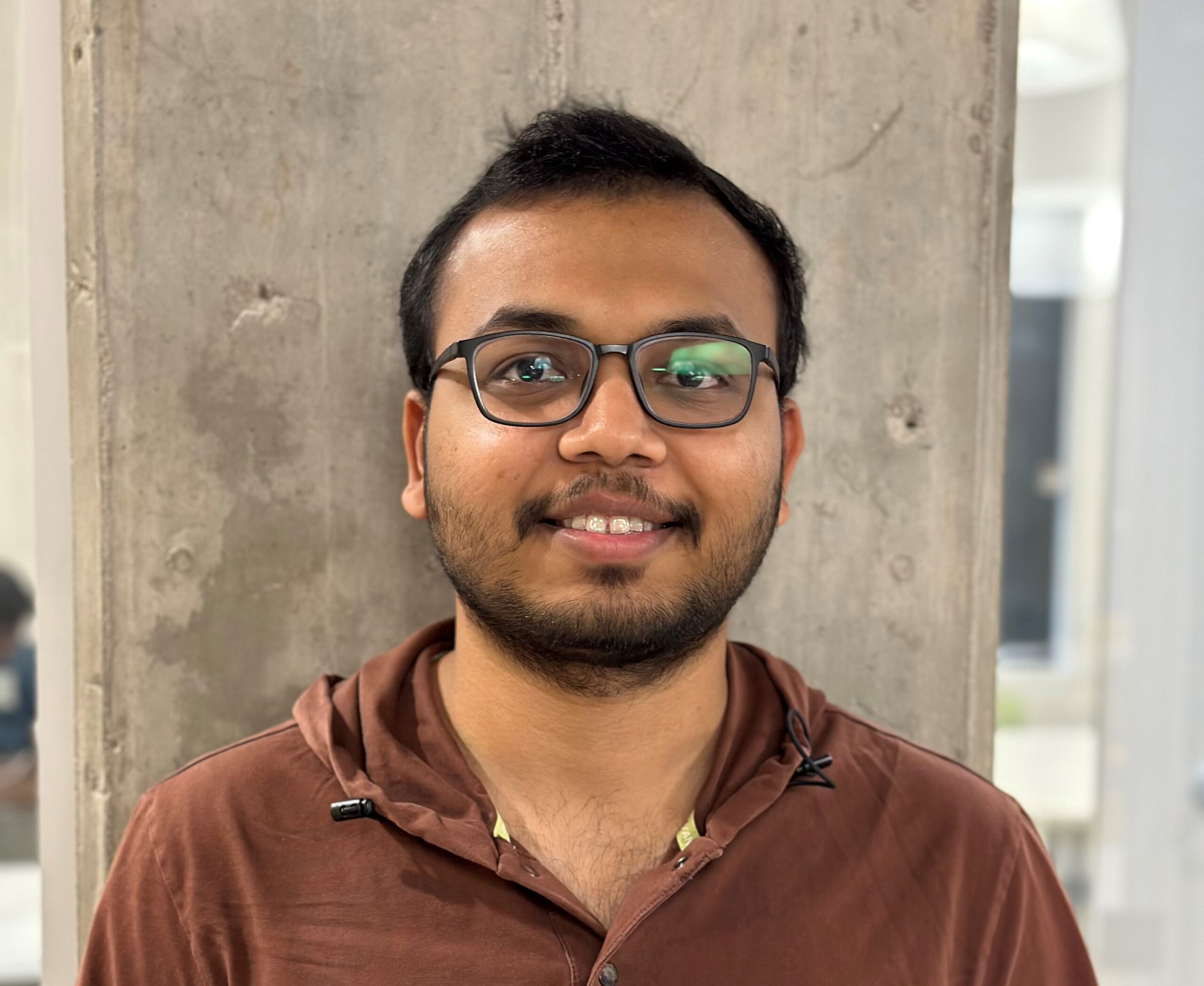
Ashish Reddy Bommana
I am Ashish, currently in my second year of Ph.D. program in Computer Engineering under the supervision of Dr. Krishnendu Chakrabarty. Before joining the ACME Center as a Ph.D. student, I worked in the ACEG group at AMD as a Software Development Engineer. I completed my Bachelor’s degree in Electrical and Communication Engineering at the Indian Institute of Technology Bhubaneswar in 2021. My research interests include Processing In-Memory ML Accelerators, Reliability, and Computer Architecture
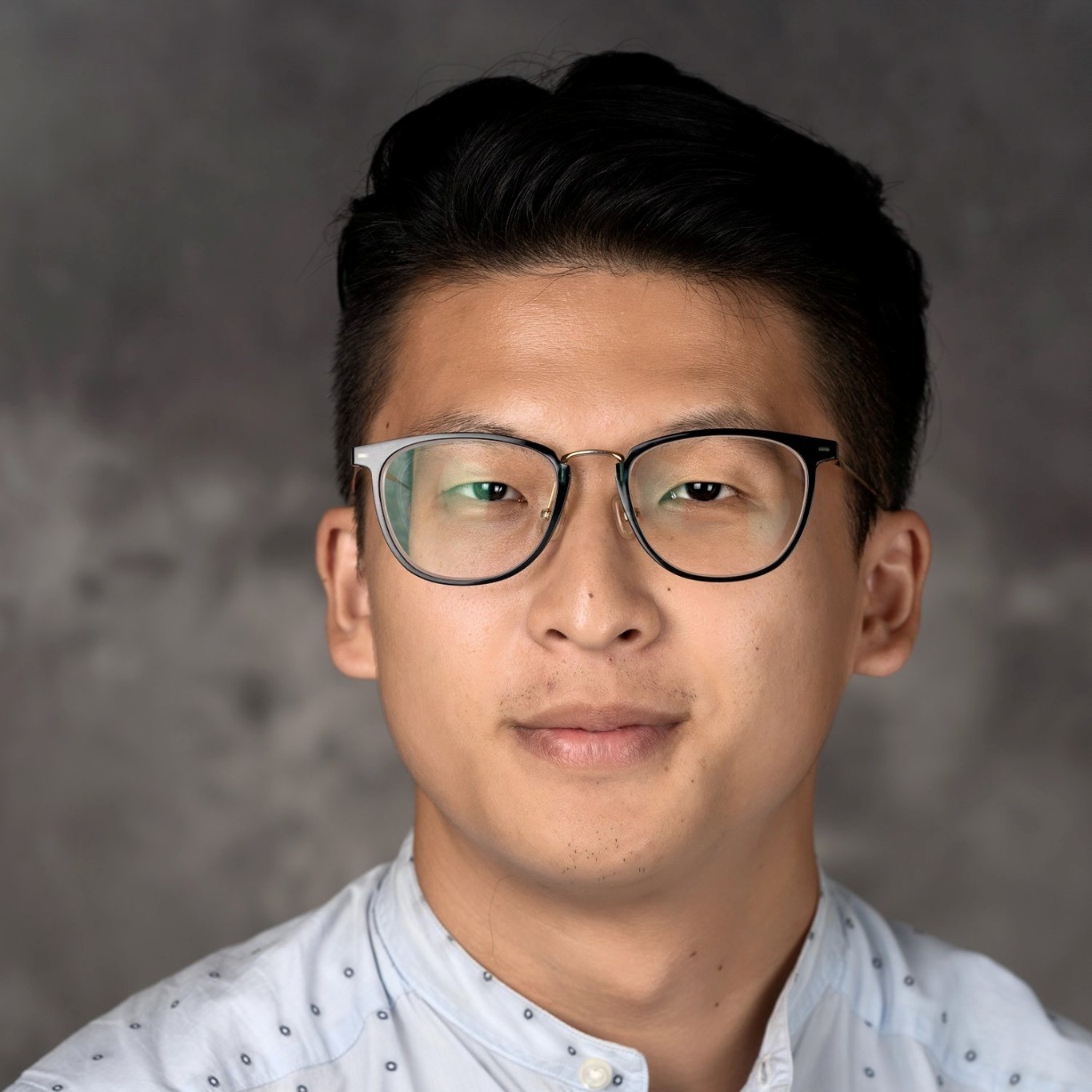
Ching-Yuan “Jonah” Chen
Ching-Yuan Chen is a Ph.D. researcher in the Department of Computer Engineering at Arizona State University. His research focuses on AI hardware security, fault-tolerant neuromorphic computing, and Design-for-Testability (DfT) for emerging AI accelerators. His current work includes securing memristor crossbar architectures, optimizing real-world large DNN models (including LLM and computer-vision models) for AI hardware, and developing online functional testing for neuromorphic deep learning accelerators.
Previously, he was a researcher at Duke University and a DfT engineer at NVIDIA, where he contributed to GPU test automation, performance profiling, and system-level simulation. He received his M.Sc. and B.Sc. degrees from National Taiwan University (NTU), specializing in electronics engineering and IC design. He has authored multiple peer-reviewed publications in top conferences and journals, including IEEE TCAD, DAC, ITC, and DATE, and holds patents related to AI accelerator testing and fault analysis. His work bridges AI, hardware security, and machine learning-driven optimization to enhance the reliability and efficiency of next-generation computing architectures.

Peter Domanski
My name is Peter Domanski. I studied electrical engineering and received my Bachelor’s and Master’s degrees at the University of Stuttgart. I am a Ph.D. student at the Department for Parallel and Distributed Systems (Institute: Scientific Computing) at the University of Stuttgart and currently a visiting researcher at ASU. My research focus is the application of ML methods (especially Reinforcement Learning approaches) in semiconductor testing or related research fields for example digital healthcare.
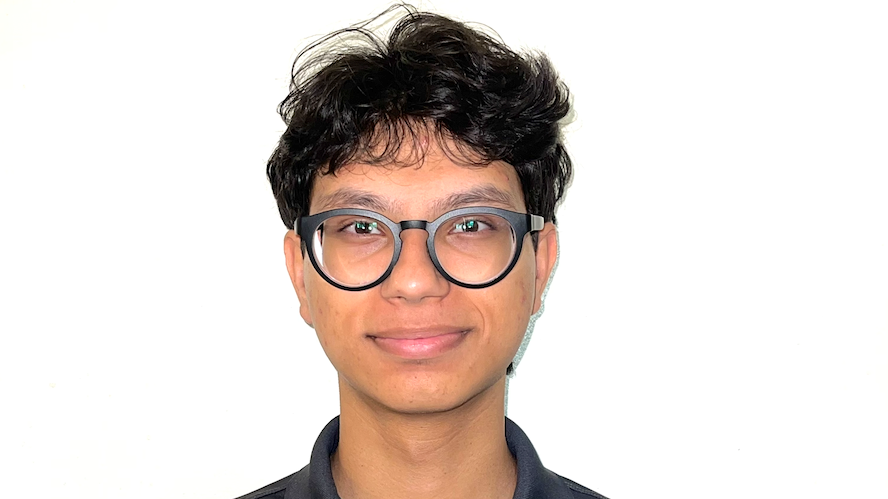
Biplove Baral
I am Biplove Baral, currently a senior in the aerospace engineering undergraduate program. My research interests are in IP protection for Digital Microfluidic Biochips, using reinforcement learning. My research interests are in developing reinforcement learning frameworks that enhance the security and efficiency of emerging technologies. I am also interested in multi-agent reinforcement learning and its applications in autonomous systems, robotics, and next-generation AI-driven technologies.
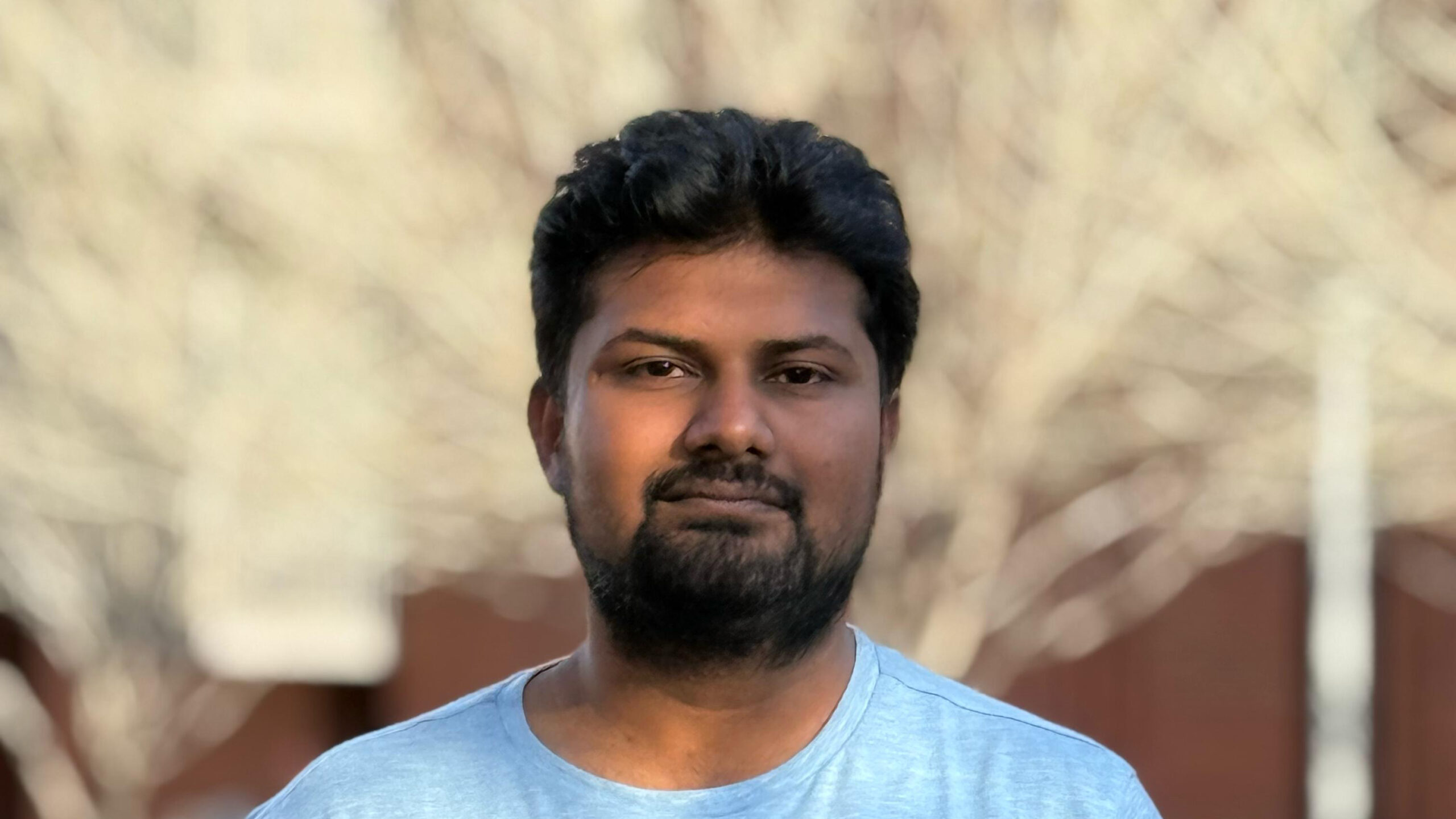
Arjun Hati
Arjun Hati is a first-year Ph.D. student in Computer Engineering at Arizona State University, under the supervision of Dr. Krishnendu Chakrabarty. He joined the ACME Lab in Spring 2025.
Arjun earned his Master’s degree in Computer Engineering from Arizona State University in Fall 2024. Prior to that, he completed his Bachelor’s degree in Applied Electronics and Instrumentation from West Bengal University of Technology in 2018.
Before pursuing his Ph.D., Arjun gained four years of industry experience as an Embedded Software Developer in the Research and Development division of TVS Motor Company Pvt. Ltd. (Electric Vehicle Division), where he worked on software development of Vehicle control Unit.
His current research interests include Hardware Trojan detection, Security of 2.5D/3D HI systems, and hardware accelerator security.
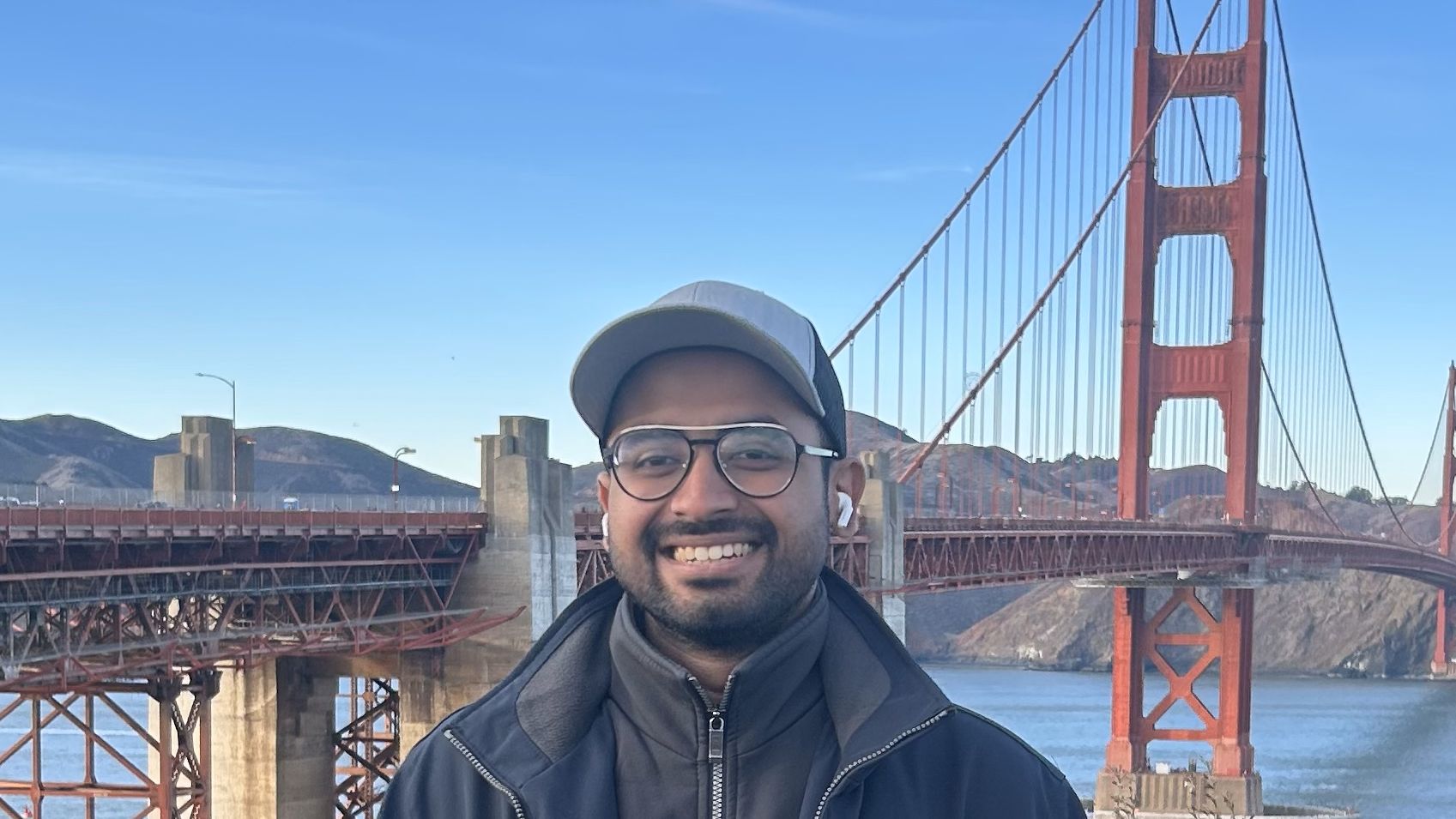
Abhishek Bhattacharya
Abhishek Bhattacharya is a Master’s student in Computer Science at Arizona State University. He holds a Bachelor of Engineering in Instrumentation and Control from Netaji Subhas Institute of Technology (Delhi University). Before joining ASU, he worked as a C++ developer for nearly four years at Cadence Design Systems, where he contributed to the development and optimization of Electronic Design Automation
(EDA) tools. His work focused on enhancing power integrity solutions, implementing multithreading techniques for performance improvements, and developing self-heating analysis tools for semiconductor design.
Throughout his career, Abhishek has been deeply involved in optimizing large-scale software systems, improving computational efficiency, and ensuring the scalability of critical applications. His expertise includes advanced C++ programming, parallel computing, and software debugging. At ASU, he aims to expand his knowledge in software optimization techniques and explore new approaches for improving EDA tool performance. He is passionate about solving complex engineering problems and contributing to innovative software solutions that enhance the efficiency and accuracy of semiconductor design and verification processes.
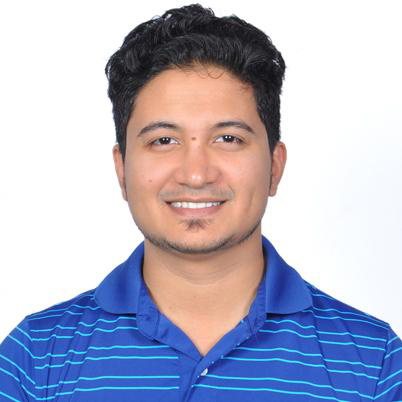
Krishna Madabhushi
Krishna Pramod Madabhushi is pursuing PhD at Arizona State University supervised by Dr. Krishnendu Chakrabarty. He holds a M.S.E degree in Electrical Engineering from Arizona State University and a Bachelor of Technology degree in Electronics and Communications Engineering from JNTU Hyderabad. He is currently working as a Principal IC Design Engineer at Medtronic, where he actively works on the design and verification of ultra-low-power implantable medical devices. His work is critical in developing technologies that deliver life-enhancing therapies such as pacing, sensing, defibrillation, pain management, and neuromodulation. Drawing on more than a decade of experience, Krishna is committed to excellence and demonstrates a meticulous focus on quality. He holds a patent on improving neurostimulation resolution and he has presented a paper on BIST methodology to test linearity of sigma-delta modulators (SDMs) at ITC and a paper on chip-level IDDQ current estimation at the Synopsys User Group (SNUG). His technical contributions in self-test strategy for implantable devices were recognized by Medtronic with the Technical Excellence Award in 2022. An active member of IEEE, Krishna is continuously driven to expand his expertise and make meaningful contributions to his field.
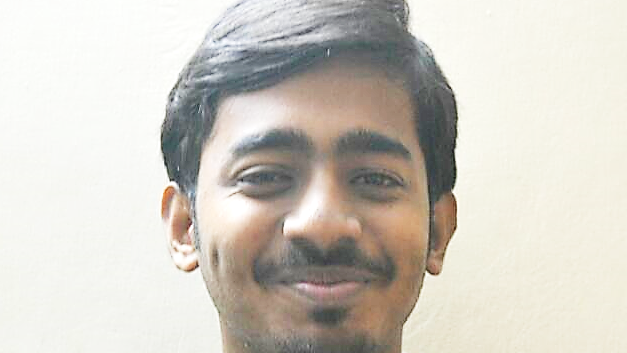
Deepesh Sahoo
Deepesh Sahoo is a master’s thesis student at the ASU Center for Semiconductor Microelectronics, where he is supervised by Prof. Krishnendu Chakrabarty. He holds a B.Tech degree from the Department of Electronics and Communication Engineering at PES University, India, which he earned in 2021. With 2 years of work experience at Wipro, Deepesh focused on Design-For-Test methodologies while collaborating with Altera. Additionally, he has interned at Analog Devices and NXP Semiconductors. His research interests span test methodologies, FPGA virtualization, memory design, and machine-learning enhanced algorithms for VLSI design.
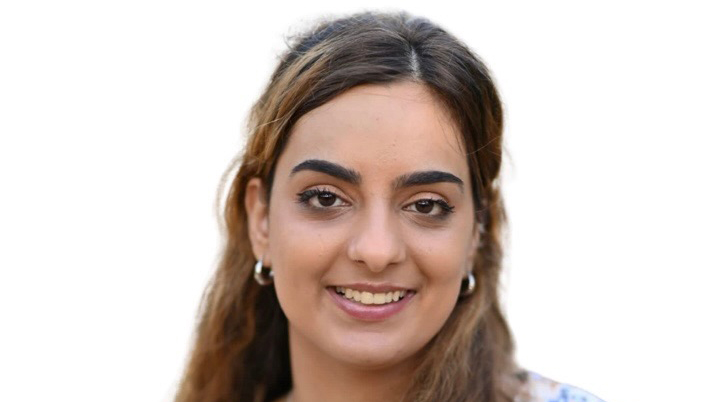
Pragya Sharma
Pragya Sharma is a Ph.D. student in Electrical and Computer Engineering at Arizona State University, advised by Dr. Krishnendu Chakrabarty. She holds a Bachelor of Science in Computer Engineering and a Master of Science in Electrical Engineering from Mercer University. Her research focuses on machine learning, hardware acceleration, and system optimization. Pragya has worked in both academia and industry, with experience at Boeing, Cisco, and multiple research labs, where she has developed AI-driven solutions and optimized embedded ML systems. She enjoys working at the intersection of software and hardware, constantly exploring ways to make machine learning more efficient and scalable.
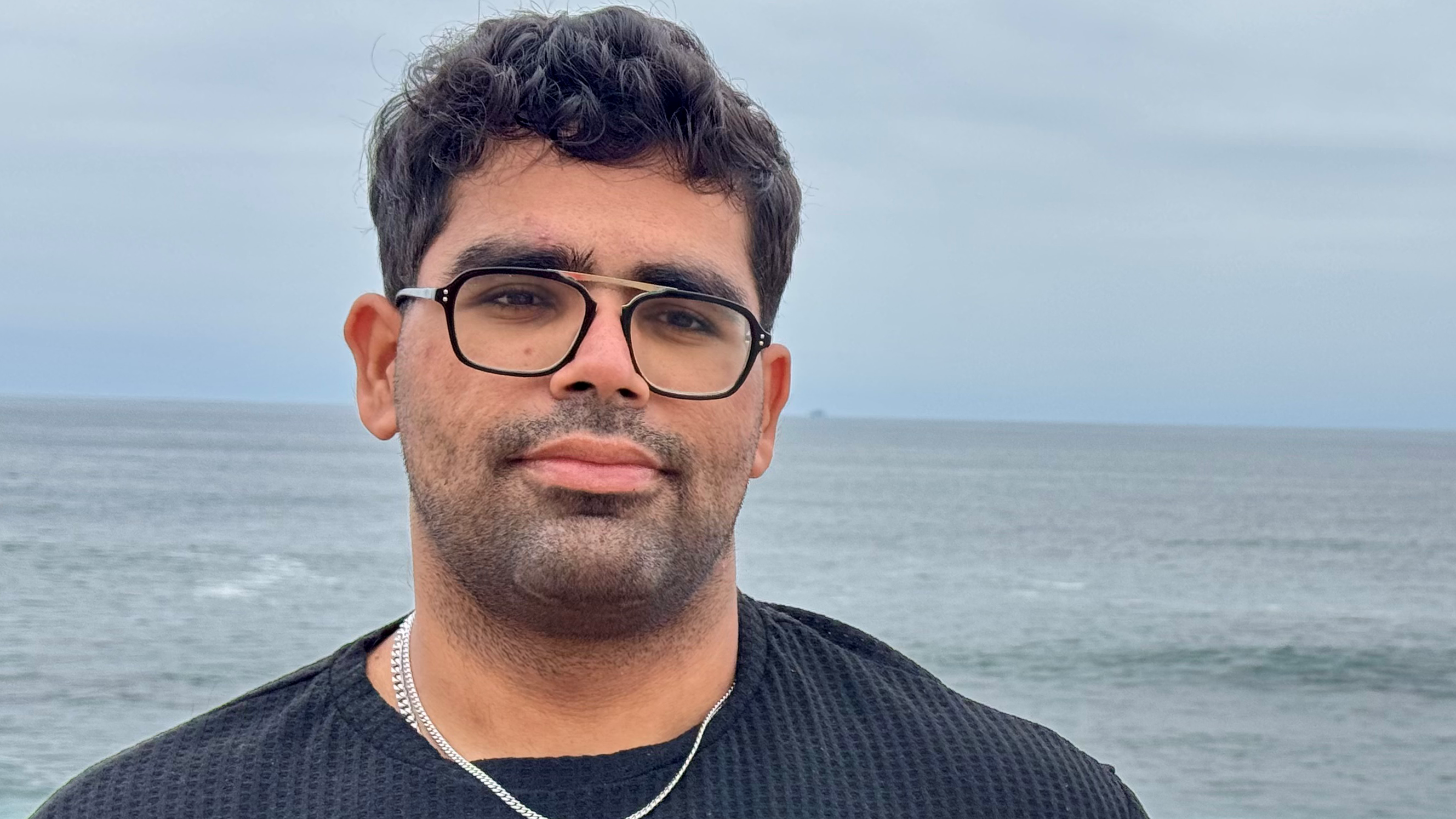
Agastya Seth
Agastya Seth is an MS Computer Science student with three years of software development experience in Electronic Design Automation (EDA). He is currently conducting research on LLMs for EDA at the ACME Lab, exploring how AI can enhance hardware design and verification. Additionally, he is involved in AI-driven healthcare projects, focusing on signal processing and predictive analytics. Passionate about the intersection of AI, hardware, and real-world applications, Agastya aims to push the boundaries of intelligent systems in both EDA and healthcare.

Yujian Huang
Yujian Huang is currently the doctorate student under Dr. Daphne Chen’s supervision. His research interests include microelectronics fabrication, new materials, emerging memory, and physic modeling on semiconductor devices. He plays volleyball and badminton when have leisure time.

Dhruv Thapar
Dhruv is a PhD student at ASU Center for Semiconductor Microelectronics (ACME), Arizona State, supervised by Prof. Krish Chakrabarty since 2023. He started his PhD in 2022 at Duke University where he spent a year before transferring to ASU. Prior to this, he completed a Dual Degree (B.Tech + M.Tech) in Signal Processing from the department of Electrical Engineering, IIT Kharagpur in 2020. During his senior years, he conducted his undergrad and graduate research at the SEAL lab, IIT Kharagpur. Before starting his PhD, he also worked as a Research Assistant at COSIC, KU Leuven. His research interests lie in the area of design-for-testability (DfT) and making fault-tolerant designs.

Samatha Janssen
I started my studies at Arizona State University during the Fall 2021 semester, and I am on track to graduate with a BSE in electrical engineering this May of 2024. I intend to pursue another year at ASU to obtain an MS in electrical engineering that will involve a thesis for the continuation of the Structural Built In Self Test of Analog Circuits research. Currently, I am involved within my community by being a Girl Scout Gold Award Mentor where I serve as a resource for younger Girl Scouts pursuing their Gold Award. I also work part-time at a semiconductor engineering company, along with other opportunities such as being a research assistant as well as a teaching assistant.

Seckin Demir
H. Seckin Demir holds a B.S. and an M.S. in Electrical and Electronics Engineering from Bilkent University, Ankara, Turkey, earned in 2014 and 2017, respectively. Currently, he is a Ph.D. student and a Graduate Research Assistant in the Electrical, Computer, and Energy Engineering (ECEE) Department at Arizona State University. His research focuses on computer vision, image processing, and machine learning fields. He has 6 years of industry experience, over 10 published papers, and 2 patents in his field of study.

Shail Dave
Shail Dave is a final-year Ph.D. candidate at the School of Computing and Augmented Intelligence, Arizona State University. His research techniques and infrastructures enable efficient processing of critical applications like machine learning on hardware accelerators in an agile and sustainable manner. His research is published and referenced in flagship conferences and journals in computing design automation, computer architecture, and embedded systems and invited to premier international conferences and industrial forums. Shail has piloted several projects in national/global competitive programs with academics and industry researchers, including for designing/supporting heterogeneous and AI computing systems. He has received several honors, awards, and fellowships, including Silver Medal at ACM SIGBED Student Research Competition, Outstanding Research and Teaching Assistant Awards, and Doctoral Dissertation Fellowship from Graduate College at ASU. His research has been featured by several media and technical forums, including ASU news, ACM tech news, IEEE HKN, Communications of the ACM news, and insideHPC. He regularly serves in mentorship programs, vision workshops and panels for emerging computing systems research, and as a reviewer and organization/program committee member for the related flagship ACM/IEEE conferences, workshops, and journals

Tasneem Khan Shifa
Tasneem Khan Shifa is pursuing Ph.D. in Electrical Engineering at Arizona State University. She received her Master’s in Electrical Engineering from Texas State University. Also, She completed her Bachelor’s in Electronics and Communication Engineering From Khulna University of Engineering and Technology (KUET) from Bangladesh.

Yuhong Lu
Yuhong Lu received B.S. degree in electrical engineering from Hefei University of Technology, Hefei, Anhui, China, in 2019. He is currently a Ph.D. student from the Department of Electrical Engineering at Arizona State University, Tempe, AZ, USA. He has research focused on a buck or boost converter and high PSRR LDO, collaborating with Qualcomm and Texas Instruments in 2020 and 2023, respectively. His current research interests include mixed-signal analog design and power management IC design.

Gitanjali Mukherjee
Gitanjali Mukherjee completed her Bachelors in Electronics and Communication engineering from National Institute of Technology in Calicut, India in 2018. She is currently a Masters student at Arizona State University specializing in Computer Engineering (Electrical Engineering). Prior to this she had been working as a DFT Engineer for over 4 years at Synopsys, working on DFT insertion, ATPG, Simulations etc. She is also currently doing an internship at Nvidia as a DFT engineer.

Fan Guo
Fan Guo received the B.E. degree in Electronic Science and Technology from Huazhong University of Science and Technology, Wuhan, China, in 2009, and M.S. degree in Electrical Engineering from Technical University of Delft, Delft, the Netherlands, in 2011. He is currently pursuing the Ph. D. degree in Electrical Engineering with Arizona State University. From 2012 to 2017, he was an Analog Design Engineer at Melexis, Tessenderlo, Belgium, where he was involved in designing pressure sensor and current sensor interfaces. He worked as a Design Consultant at IMEC Belgium in 2018 where he led the design optimization activities for a 3-stage driver tailored for coaxial cables. He was an Analog Design Intern at Kilby Labs, Texas Instruments, Dallas, TX, USA, in 2019, where he was involved in high-power high-efficiency buck converter design focusing on the gate-charge loss reduction. He was an Analog Design Intern at NXP Semiconductors, Chandler, AZ, USA in 2021 and 2022, where he worked on the system level modeling and block level optimization of high-performance fast transient dc-dc buck converter IP. Since 2023, he has been working as an Analog Circuit Engineer with NXP Semiconductors, Chandler, AZ, USA, where he is involved in the block level design and top-level verification of the dc-dc buck converter IPs. His current research interests include analog and mixed-signal design as well as power-management IC design and system modeling.

Rakshit Dambe Nayak
Rakshit Dambe Nayak received the M.S. degree in electrical engineering from Arizona State University, Tempe, AZ, USA, in 2018, where he is currently pursuing the Ph.D. degree. From 2014 to 2016, he was a Design Engineer at Sankalp Semiconductors Pvt. Ltd., Hubli, India, where he was involved in design and characterization of standard cell libraries. He was an Analog Design Intern at Kilby Labs, Texas Instruments, Santa Clara, CA, USA, in 2021, with NXP Semiconductors, Chandler, AZ, USA, in 2019 and 2020; and Dialog Semiconductor, Chandler, in 2017, where he worked on the system level modeling and design of dc–dc power converters and low-power analog circuits for PMICs, respectively. Since 2023, he is working as Analog Design Engineer with Kilby Labs, Texas Instruments, Santa Clara where he is involved in developing high efficiency, next generation power converters for enterprise power. His current research interests include low-power analog and mixed-signal circuit designs for high efficiency dc–dc power management ICs and power delivery for high current applications.

Balaji Yadav Battu
Balaji Yadav Battu is a PhD student in Electrical Engineering at Arizona State University, specializing in analog and mixed-signal design with a focus on switching converters under the guidance of Dr. Bertan Bakkaloglu. He has a robust background in power management ICs, voltage/current references, and LDOs. Balaji has published papers in prestigious conferences like ISCAS, ISVLSI, and VLSID. His expertise spans both academic research and industrial experience, including internships at Qualcomm and a role as a DFT engineer. Prior to ASU, Balaji completed his Master’s in Electronics and Communication Engineering at IIIT Hyderabad, India, and his undergraduate degree at R.V.R. & J.C. College of Engineering, India.

Sachin Kalburgi
I am currently pursuing a master’s degree in electrical engineering at Arizona State University. I completed my bachelors degree in electronics and communications engineering from KLE Technology University from Hubballi, India. I worked as an IO circuit design engineer at Infineon Technologies Bangalore for 4 years. Here I worked on high-speed IO circuits, ESD protection cells, IP deliverables and on-chip IO noise debug. Currently, I am doing research under Dr. Bertan on load-sharing DC-DC converters.

Wilson Pradeep
Wilson is a semiconductor industry professional with over 17 years of experience. Currently Wilson leads as a Senior DFT Engineering Lead/Architect at Google Devices & Services-Silicon in Mountain View, California. His career began at IBM India Technology Labs, followed by a successful tenure as a Member Group Technical Staff at Texas Instruments.
Throughout his career, Wilson has spearheaded and contributed to numerous designs and DFT (Design for Test) teams, guiding the successful execution of approximately 10 SoCs (System on Chip) from conception to production. He specializes in advanced fault models, defect modeling, reliability and security testing, cost-effective DFT methodologies, and automotive DFT.
Wilson holds a Master of Engineering in Applied Electronics from the College of Engineering Guindy in Chennai, India, and a Bachelor of Engineering in Electronics and Instrumentation from Karunya Institute of Technology in Coimbatore, India. He is currently pursuing a PhD at Arizona State University under the supervision of Professor Dr. Krishnendu Chakrabarty.
A prolific researcher and innovator, Wilson has authored 36 publications, including numerous papers presented at prestigious conferences such as the IEEE International Test Conference (US & India), Asian Test Symposium, and VLSI Test Symposium. His work has garnered recognition through 9 Best Paper awards and 11 granted patents, with 4 more patents pending in the US PTO, all focused on DFT and test methodology.
Wilson actively contributes to the semiconductor testing community as a Technical Program Co-chair for the ITC India conference and a Special Session Co-chair for the IEEE VLSI Test Symposium.

Partho Bhoumik
I am a first-year PhD student at Arizona State University. Before joining ASU, I completed my BSc in Engineering from the Bangladesh University of Engineering and Technology (BUET) in 2022. My current research is dedicated to pioneering test solutions for advanced technologies, including 3D heterogeneous and neuromorphic systems as well as silicon photonics. Outside the laboratory, I am passionate about hiking, traveling to new destinations, and playing badminton, activities that provide a perfect balance to my research endeavors.

Nikhil Sagar
I’m Nikhil Sagar Modala, currently pursuing my Master’s thesis. My research interests involve Analog & mixed signal circuit design, Fault simulation/modelling, Design for test, and Built-in-self test methodologies. I’m passionate about exploring innovative solutions in these domains to address real-world challenges and contribute to advancing technology. I also have a keen interest in high-speed SerDes systems and aspire to delve deeper into this field as part of my research journey.
Other Affiliates

Christopher Keys
Christopher Keys holds a BS in Physics, MSc in Mechanical Engineering, and is finishing up a PhD in Electrical Engineering/Engineering Physics though Duke University. He is currently a Visiting Scholar at ASU working towards a novel cooling method to get pyroelectric research out of the lab and into realizable technology. He has carried out many successful research endeavors for military and space industries. Christopher is the CEO of Renegade Research, a think-tank/research-lab start-up, which, among many other projects, is building a unique plug and play device that incorporates hardware security technology directly into circuits critical and common alike.

Aritra Ray
Aritra Ray is a Ph.D. student in the Department of Electrical and Computer Engineering at Duke University, US (2021-24). His research focuses on resource orchestration for cloud computing, the Internet of Things, health informatics (deep learning for type-1 diabetes prediction and uncertainty quantification of autoencoders), large language models, and privacy-preserving machine learning. He earned his Bachelor of Technology in Information Technology from the University of Calcutta, India (2017-21) and his Master of Science in Electrical and Computer Engineering from Duke University, US (2021-23).

Jonti Talukdar
Aritra Ray is a Ph.D. student in the Department of Electrical and Computer Engineering at Duke University, US (2021-24). His research focuses on resource orchestration for cloud computing, the Internet of Things, health informatics (deep learning for type-1 diabetes prediction and uncertainty quantification of autoencoders), large language models, and privacy-preserving machine learning. He earned his Bachelor of Technology in Information Technology from the University of Calcutta, India (2017-21) and his Master of Science in Electrical and Computer Engineering from Duke University, US (2021-23).
Adjunct Faculty

Arjun Chaudhuri
Arjun Chaudhuri is a Senior Design-for-X (DFX) Methodology Engineer at NVIDIA Corporation, Santa Clara, CA, and an Adjunct Faculty at Arizona State University. He received the B.Tech. degree in Electronics and Electrical Communication Engineering from Indian Institute of Technology, Kharagpur, in 2017, and the M.S. and Ph.D. degrees in Electrical and Computer Engineering from Duke University, Durham, NC, in 2020 and 2022, respectively. His research interests span design-for-testability and safety-criticality analysis for AI accelerators, test and diagnosis of 3D SoCs, and applications of AI in test and security of AMS circuits

Sanmitra Banerjee
Sanmitra Banerjee is a Senior Design-for-X (DFX) Methodology Engineer at NVIDIA Corporation, Santa Clara, CA, and an Adjunct Faculty at Arizona State University. He received the B.Tech. degree from Indian Institute of Technology, Kharagpur, in 2018, and the M.S. and Ph.D. degrees from Duke University, Durham, NC, in 2021 and 2022, respectively. His research interests include machine learning based DFX techniques, and fault modeling and optimization of emerging AI accelerators under process variations and manufacturing defects.